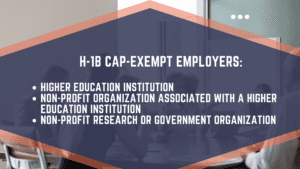Why Is Biden Implementing Immigration Policies Few Americans Favor?
During a recent interview, I was asked: “Why is Joe Biden implementing immigration and border policies that have such harmful effects and such little popular support?” Next to questions about how many illegal migrants the administration has released into the United States (which I recently attempted to calculate, impeded by the administration’s lack of transparency), it’s the most common query I receive, and the hardest to answer succinctly. But here goes.
The Mayorkas “Guidelines” Memo. On September 30, 2021, DHS Secretary Alejandro Mayorkas issued a memo captioned “Guidelines for the Enforcement of Civil Immigration Law” (“guidelines” or the “Mayorkas memo”). It directs ICE officers and attorneys to consider certain “aggravating” and “mitigating” factors before they investigate, question, arrest, detain, prosecute, or remove deportable aliens (collectively: “enforcement action”), with limited exceptions.
The aggravating factors are more general and objective, relating to the alien’s specific criminal offenses and prior criminal history, while the mitigating factors are more individual and subjective, having to do with the alien’s age, health, eligibility for relief from removal, and — interestingly — whether any of the alien’s family members were in the military or worked for the government.
The Mayorkas memo is quick to explain that the “foundational principle” for such considerations is the executive branch’s inherent authority not to take enforcement action in specific cases, known as “prosecutorial discretion”:
It is well established in the law that government officials have broad discretion to decide who should be subject to arrest, detainers, removal proceedings, and the execution of removal orders. The exercise of prosecutorial discretion in the immigration arena is a deep-rooted tradition.
…
In exercising our discretion, we are guided by the fact that the majority of undocumented noncitizens who could be subject to removal have been contributing members of our communities for years. They include individuals who work on the frontlines in the battle against COVID, lead our congregations of faith, teach our children, do back-breaking farm work to help deliver food to our table, and contribute in many other meaningful ways.
That justification leads to what is probably the most-quoted lines in that memo, Mayorkas’ directive to all DHS immigration-enforcement-officers:
The fact an individual is a removable noncitizen therefore should not alone be the basis of an enforcement action against them. We will use our discretion and focus our enforcement resources in a more targeted way. Justice and our country’s well-being require it.
If you want to know why, as my colleague Jon Feere recently reported, the number of criminal aliens removed from the United States has plummeted, those excerpts from the Mayorkas memo explain it. Burglars, murderers, and sex offenders have families, too, and when viewed through that Mayorkas lens, some of them deserve to stay.
The “Considerations” Memo. The Immigration and Nationality Act (INA), of course, takes a harder line, as do most in the public, and it requires a great deal of elucidation to explain why “justice and our country’s well-being require” ICE to leave alien serial drunk drivers alone, free to continue their activities.
The secretary attempted to justify his position in a separate (and more lengthy) document issued the same day as his immigration-enforcement guidelines captioned “Significant Considerations in Developing Updated Guidelines for the Enforcement of Civil Immigration Law” (the “Considerations memo”).
The Considerations memo dives deep into the hoary history of prosecutorial discretion, starting with the words of then-Attorney General (and later Supreme Court justice and Nuremberg war crimes prosecutor) Robert H. Jackson to an assembled group of U.S. attorneys in 1940:
Your positions are of such independence and importance that while you are being diligent, strict, and vigorous in law enforcement you can also afford to be just. Although the government technically loses its case, it has really won if justice has been done.
As an aside, Jackson also explained in that speech:
Those who are in office are apt to regard as “subversive” the activities of any of those who would bring about a change of administration. … We must not forget that it was not so long ago that both the term “Republican” and the term “Democrat” were epithets with sinister meaning to denote persons of radical tendencies that were “subversive” of the order of things then dominant.
Mayorkas omitted those lines from the Considerations memo.
In any event, the words he did quote raise the question of what it means to be “just” when it comes to aliens who entered illegally and have no right to be in the United States, let alone those actively preying on the community here. For that, the Considerations memo offers the following paragraph:
On his first day in office, President Biden affirmed that “advancing equity, civil rights, racial justice, and equal opportunity is the responsibility of the whole of our Government.” In the immigration enforcement context, scholars and professors have observed that prosecutorial discretion guidelines are essential to advancing this Administration’s stated commitment to “advancing equity for all, including people of color and others who have been historically underserved, marginalized, and adversely affected by persistent poverty and inequality.”
I omitted the footnotes from that passage, but curiously there are none for the conclusions of the “scholars and professors” referenced.
That said, those words make clear how the Biden administration views the congressional limits and restrictions on aliens in the INA: they are the dusty — and hateful — relics of a discriminatory age, “Jim Crow 1.0” to paraphrase President Biden in a different context.
“The Hard Truth About Immigration”. That passage from the Considerations memo also, however, reflects an attitude that certain Americans, particularly on the progressive left, share — that the United States owes an obligation to the world’s poor and marginalized that the limits and restrictions in the INA don’t address, and in fact impede.
You may not share such views, but fortunately David Leonhardt, “economics columnist for The New York Times”, laid out the case for both sides of the issue in an October article in The Atlantic headlined “The Hard Truth About Immigration: If the United States wants to reduce inequality, it’s going to need to take an honest look at a contentious issue”.
Notwithstanding The Atlantic’s left-leaning slant, it’s a candid analysis of the economic impacts of U.S. immigration since 1965, with a special emphasis on poor Americans. Although the Center is not mentioned, the article vindicates many of our key principles.
Leonhardt focuses on two “belief sets” he identifies as “universalism” (which emphasizes “two values above all: care for others, especially the vulnerable, and fairness”) and “communalism” (which embraces those values to a degree, but that hews more strongly toward “respect for authority, appreciation of tradition, and loyalty to family and community”).
He explains:
Immigration policy presents a distillation of the tensions between the two worldviews. To communalists, a government should limit arrivals and prioritize its own citizens. To universalists, national loyalties can be dangerous, and immigration can lift global living standards by allowing more people to share in a rich country’s prosperity. In recent decades, this debate has become part of the growing political polarization in many Western countries, including the United States. Surveys show that liberals tend to be universalists who support higher levels of immigration, and conservatives tend to be communalists who favor less immigration.
Leonhardt beats around the bush a lot in that article, but he offered a much more succinct summary in a January 10 Times article headlined “An Immigration Shift. Leading Democrats once supported immigration enforcement measures. Today, much of the party is uncomfortable doing so.”
Leonhardt suggests that the 2016 campaign of Donald Trump for president and the subsequent Trump administration were an impetus for a shift by leading Democrats away from concerns about the impacts of immigration on America’s poor toward a focus on the needs of the migrants themselves:
By 2020, top Democrats were instead calling for the decriminalization of the border. On Capitol Hill, Democrats spoke more positively about immigration than any party had in the country’s history, according to an analysis of congressional speeches. During Biden’s campaign, he encouraged immigrants to come and later appointed advocates of looser immigration policies to his administration, as Dexter Filkins of The New Yorker has noted. Today, liberals describe border-security measures that the Democratic Party once would have favored as severe, cruel or “Trump-era.”
Directly thereafter, Leonhard bottom-lines how that shift drives current Democratic-party thought:
This new stance is rooted in a serious political argument: namely, a humanitarian case for allowing poor people to improve their lives by moving to the U.S. To put it another way, many Democratic politicians favor higher levels of immigration than federal law allows. [Emphasis added.]
One can only imagine what Justice Jackson would have thought had he known that his concerns about prosecutors using their power to apply the laws as written against specific groups would somehow justify a philosophy allowing them to ignore the laws entirely, but there you have it.
My colleague Steve Camarota recently detailed the costs of “unrestricted immigration” in the journal Tablet:
Perhaps the biggest labor market issue is that in the last half century the share of less-educated men not in the labor force increased dramatically as immigration grew. Among U.S.-born men ages 20 to 64 with no education beyond high school, the share not in the labor force — neither working nor looking for work — increased from 7% in 1960 to 25% in 2023. These men do not show up as unemployed because they are not actively looking for work.
In turn, the rise in non-work is associated with a host of profound social pathologies, from crime and social isolation to overdose deaths and welfare dependency. At a time when many businesses struggle to find workers, it may seem desirable to simply use immigration to fill jobs. But continuing to bring in millions of less-educated immigrants effectively allows business interests and the state to ignore the huge deterioration in labor-force participation and all the accompanying social problems that large-scale immigration creates among poor Americans of all races and social backgrounds. [Emphasis added.]
Unrestricted immigration — over and above the limits Congress has set — is not exactly a zero-sum game, but the negative economic impacts fall most heavily on the poor and disadvantaged.
Congress itself understands this, which is why the INA bars aliens seeking “to enter the United States for the purpose of performing skilled or unskilled labor” from admission unless the Labor secretary certifies that “the employment of such alien[s] will not adversely affect the wages and working conditions of workers in the United States similarly employed”.
The administration’s border-release policies do an end-run around those limits, as Leonhard explains, out of a “universalist” interest in caring for the world’s poor by allowing them to live and work here.
Why is President Biden implementing immigration policies few Americans favor? Two reasons: He views the immigration limits Congress has set as inherently discriminatory, a hateful vestige of a bigoted age; and he believes that United States doesn’t owe any special duty to America’s poor compared to others in the world who have it worse. That none of this is legal is beside the point.






